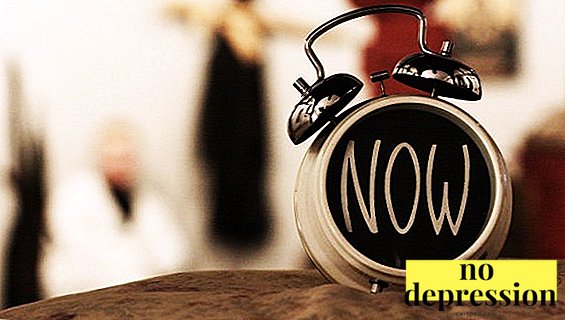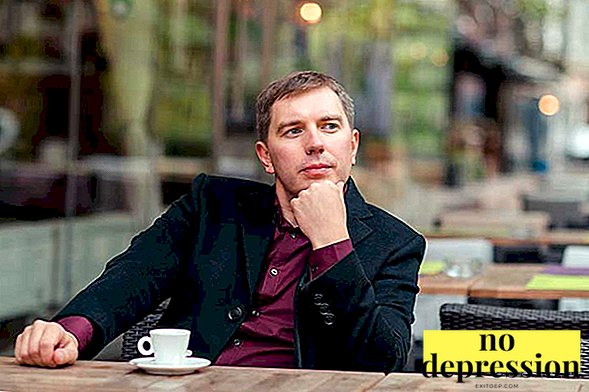“If you do good to another, you will benefit from it,” says a Mongolian proverb. And this fact is proven scientifically. Experts say: voluntary help improves mood, reduces pressure, prolongs life and makes us happier. Today we will talk about mercy in religion and everyday life. And also - about how good deeds will help to get away from depression and loneliness.
What is mercy
Charity is the ability to empathize, to sympathize, to perceive the pain of others as our own. And not just sympathize, but show mercy in deeds - provide disinterested help to those who really need it, having spent their resources: time, money, health. To be merciful is to show compassion and help a being, not necessarily a human being. The ability to empathize is the basis of our identity and one of the spiritual riches of man.
Mercy is inextricably linked with such concepts as kindness, patience, kindness, care, unselfishness. But mercy is not pity: it is based on the respect of another personrecognizing his rights. While pity is arrogant, it allows us to look down upon someone who needs help. Mercy is difficult to describe in words. You can feel it in your soul or see it in the actions of a merciful person. The main thing in mercy is that it is not for the sake of something, but for its own sake.
But mercy does not involve neglect. If we are too close to the heart to perceive someone else's grief, our anxiety and depression are added to it, which is why the situation only gets worse. Here we need a different approach and a different point of view. It is better to say to yourself: although the events are really sad, it could be worse. A look at the situation from this angle will allow us not to concentrate on the tragedy, but to get a real chance to change it for the better. Such help to others is a way to improve your own life.
Charity organizations
The desire to give, without expecting anything in return, is confirmed by examples of the generosity of doctors: Nikolai Ivanovich Pirogov, Nikolai Vasilyevich Sklifosovsky, Sergey Petrovich Botkin, Ivan Petrovich Pavlov. They devoted themselves to the science and rescue of the sick, relieved a lot of suffering and saved a lot of lives.
World Red Cross Day and the Red Crescent is celebrated May 8 on the birthday of its founder, Henri Dunant. He visited the war and was shocked to see the number of wounded soldiers who were not helped. This terrible reverse side of the war Henri Dunant described in a book that he sent to all politicians of that time, rich people and his friends. He founded the world organization of assistance to the suffering, became the winner of the Nobel Prize and spent the last days in the shelter, leaving all the money to charitable organizations.
During her lifetime, the angel of mercy was called Mother Teresa, who really became a mother to abandoned children, incurable sick and impoverished slum dwellers. Mother Teresa was always at the site of catastrophes, earthquakes, wars, to support people and pray for them. According to her, a huge sin is not anger, but indifference to the misfortune of another person. In the middle of the XX century, the Order of Mercy was opened. Today it is the only religious order, where the number of people willing to join its ranks exceeds the number of vacant places.
One of the highest manifestations of humanism and mercy is considered hospice movement, the idea of which originated in the early Christian era. The word "hospes"translated as"a guest", "hospitable"and in no way connected with death. The first hospices were located along the roads that were followed by Christian pilgrims. These were institutions for weak, weak and sick people, where they took care of body and soul.
Modern hospices are different from hospitals in that they do not “repair” the human body, but treat patients as a person. There is seldom silence in the hospice - volunteers, musicians work here, relatives and famous actors and writers come to visit. Here, it is not the number of diapers and droppers that decides, but the spiritual qualities of the staff. The principle of work of modern hospices: to teach relatives to care for the sick so as to alleviate his pain without degrading dignity. If relatives do not cope, sisters of mercy come to the rescue.
Can you learn mercy? Can. Empathy manifests itself in different ways, but, in essence, means one thing: voluntarily accept the share of someone else's torment. It is not necessary to immediately go to the hospital for seriously ill patients or give all the money to a stranger. You can start small:
- Help the fallen man to rise.
- Pay for coffee for another visitor.
- To console the upset colleague.
- Take warm clothes to the shelter.
- Become a donor.
- In the store to pay groceries for an elderly person.
- Feed the stray cat or dog.
- Help settle new neighbors.
- Call grandparents just like that, for no reason.
- Leave a note with good wishes in the library book.
- Skip the line with a woman with a child.
- Ask about the affairs of an elderly neighbor.
- Help a non-native person find the right street or house.
This is not a complete list of good things you can do right now and not spend a lot of time and money on them.
Religion Mercy
The very notion of "mercy" is more characteristic of Orthodoxy and the religions of the East — the teachings of Buddha, Zarathustra, Confucius, and the Jewish prophets. In Orthodox culture, “grace” is close to the concept of “medicine” in context. In Western culture, such a thing as "charity" is more understandable.
In Orthodoxy the thought of compassion and kindness is one of the fundamental concepts. It is part of the most important commandment of Christ, and the New Testament is literally imbued with calls for unselfish kindness and long-suffering. In the Christian idea of mercy, each person is the embodiment of the Image of God. This determines his attitude towards others. In the description of the Last Judgment, the main truth is concluded: the decision to justify or reprimand a person is made on the basis of his attitude to others: whether he was merciful or not.
Provisions of different buddhist currents unites one thing: liberation from suffering, which is achieved only in a religious community. A person who refuses personal nirvana in order to teach this knowledge to others is considered merciful. In Zoroastrianism, good thoughts and merciful deeds act as instruments that help the good to overcome evil.
In the Laws of the Prophet Moses, according to which the Hebrew people lived, God himself is considered merciful and this requires the merciful treatment of widows, orphans and poor people. In philosophical the teachings of Confucius there is the concept of "jen", which is interpreted as "philanthropy" or "humanity." In the modern interpretation of the followers of Confucianism, "jen" became a universal beginning, which forms the basis of human essence.
In religion, charity is an important virtue and practical embodiment of the love of God and the Middle. But the commandments are given to us with meaning, and not for mechanical following. To follow them meaningfully, you need to put a lot of effort, to understand the commandments of the mind and soul.
Paradox of mercy
Mercy is given to us from the start as representatives of the human race. But it does not manifest at the level of instincts. But people have a great tool to develop it - this is education. Teachers know that it is necessary to begin the lessons of mercy from the first years of the baby's life. Parents, then teachers and school teachers try to inculcate the simple thought of love for all living children.
If in childhood we are taught to love cats and dogs, then adult life passes under the short motto: "here every man for himself." When childhood ends, the main question is brewing: why do people consider charity a virtue? What is the use of it for those who help others? The very idea of mercy involves attention to the pain and sorrow of others.. The main paradox is brewing: a person seeks to make himself good and at the same time willing to voluntarily delve into someone else's "bad."
The question will help to understand the concept: what happens in the soul of an indifferent or embittered person?
It can be assumed that in the life of an evil person there were traumatic events. The result of such events was the mechanism of behavior: either I was wounded, or me. To prevent pain, such a person will humiliate, call names and snap, but he will suffer from it. This mechanism is described by Freud and is called projection.
Every evil act corrodes the soul and we physically feel this suffering. After all, the expression “the soul hurts” is not a metaphor, a real pain that leads to migraines, heart attacks and oncology. At the same time, a part of our inner self suffers from the lack of good deeds. We are waiting for kindness and compassion from others, but are afraid to let them into their lives.
An interesting example is provided by the Dalai Lama XIV in a book in the book “Everything you wanted to ask the Dalai Lama”: “... When I meet someone on the street, I smile and express my human feelings. Whether another person benefits or not depends on his own way of thinking. But I get the benefits of a smile. Experiencing compassion, first of all he receives the award ... "
Psychotherapy by Mercy
Mercy is not in fashion today. Compassion is widely suspected that it is performed only for show. But by helping others, we communicate and find soul mates, reduce stress and learn to control our own pain. And yet - we solve our own psychological problems.
Getting rid of depression
Depressive people devalue their good deeds and long experience the effects of selfish actions. It seems to them that any negative events in life are only their fault, and the people around them act unfairly with them. They devalue relationships and live in their anger, greed, anger. All this leads to low self-esteem.
By doing good deeds, depressed people are aware of their own importance and necessity. They understand that they deserve love and kindness. Surprisingly, they often choose occupations with risk to life: firemen, industrial climbers, bodyguards. So they can feel like heroes.
Treatment of loneliness
Sometimes in partnerships, people feel more lonely than those who are formally free. Or change lovers, but over and over again they are left alone with a feeling of uselessness. Love is chemistry, hormones, passion. Love is attachment, respect and work. To learn to love, you need practice in one important matter - the ability to give.
In the therapy of loneliness, it is important to fill this spiritual emptiness, which creates a feeling of being useless. And here mercy comes to the rescue. After all, you need to look not for a mythical princess in the dragon's castle, but for someone who needs help right now. Taking care of others will distract the brain from constant thoughts about yourself or about problematic relationships, teach you to be necessary and help you gain self-confidence. And there the prince or princess will appear.
It has been noticed that selfless help to another helps to get rid of any whining. Even if it is done only for the sake of decency.
Findings:
- Charity is a state of mind through which we commit disinterested acts.
- The list of good deeds is endless, you can start small and today.
- Kindness towards others teaches us to be kind to ourselves.
- Compassion is good for us: it does not allow us to plunge into our own experiences and stresses.



